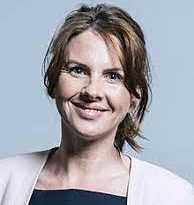Caroline Lucas – 2016 Parliamentary Question to the Department for International Development
The below Parliamentary question was asked by Caroline Lucas on 2016-05-09.
To ask the Secretary of State for International Development, if she will make it her policy to support the work of the UN High Level Panel on Access to Medicines; with reference to the Prime Minister’s comments on the pharmaceutical industry to the BBC on 2 July 2014, what recent assessment she has made of the steps to take to resolve market failure related to the development of new classes of antibiotics in that industry; and if she will make a statement.
Mr Nick Hurd
The UK is committed to ensuring access to low cost, effective medicines in the developing world, providing a range of significant inputs to increasing access to essential medicines.
We support the provision of essential medicines and other health products through innovative global partnerships such as the Global Fund for AIDS, TB and Malaria (GFATM), UNITAID, GAVI and the Medicines Patent Pool (MPP). We work to strengthen systems weaknesses, such as weak supply chains or poor procurement, which deter private investment, keep medicines prices high or lead to misuse or waste of medicines. We also place a great emphasis on research and development of new vaccines, medicines and diagnostics for conditions that affect millions of poor people. A new £1 billion fund – the Ross Fund – was recently announced with the aim of developing, testing and delivering a range of new products to help combat the world’s most serious diseases, such as malaria, Ebola and TB in developing countries.
Tackling Antimicrobial Resistance is a key priority for this Government. We are awaiting the final report of the O’Neill Independent Review on Antimicrobial Resistance later this month and the Department of Health will then lead a cross-Government response.
We support the aims of the UN High Level Panel on Access to Medicines. For it to fulfil its potential to improve access to affordable and quality medicines, including antibiotics, it will need to take a balanced approach, building on the WHO Global Strategy and Plan of Action and engaging with existing global partnerships, and use its influence to galvanise Member States, public and private sectors around a common approach to this important issue.



